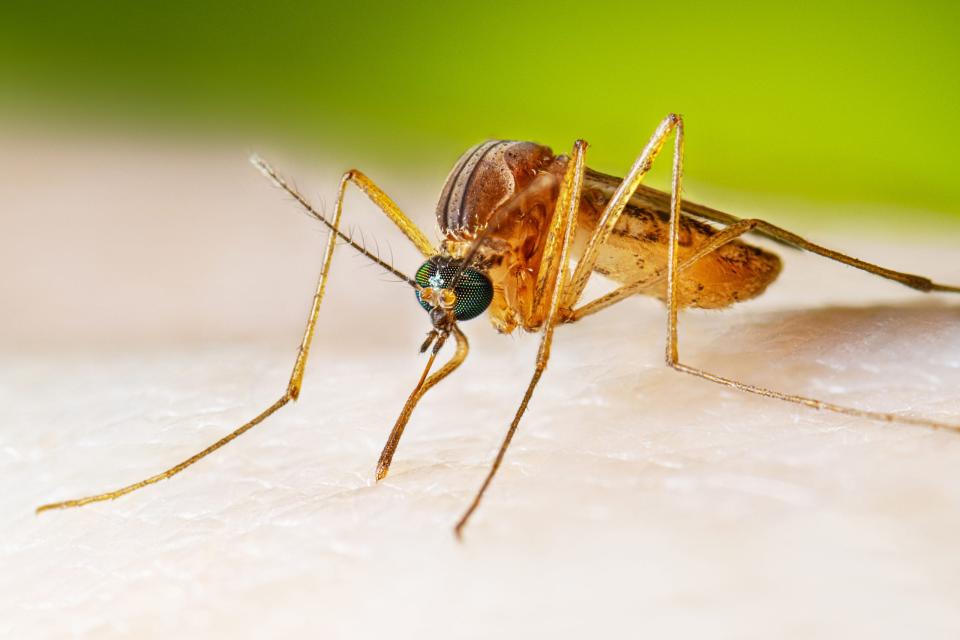West Nile Virus detected in mosquitoes in Milford. What you need to know
MILFORD — West Nile virus has been identified in a routine test in the Camp Street area, Public Health Director Dan Syriala confirmed on Wednesday.
A single positive mosquito sample was found during testing; however, Milford is still in the low-risk category, Syriala told the Daily News. The positive case was identified in a routine test collected by the Central Massachusetts Mosquito Control Project.
Syriala recommended staying indoors in higher-risk areas and eliminating standing water.

Due to the positive case, mosquito spraying was scheduled for 8 p.m. Wednesday. All spraying is performed with truck-mounted sprayers by the Central Mass. Mosquito Control Project. Residents should go indoors and shut facing windows for about 20 minutes if they see the spray truck approaching, according to the Milford town website.
Information on which streets will be sprayed can be found on the town's website.
What is West Nile virus?
West Nile virus is most often transmitted to humans through the bite of a mosquito. There have been a small number of cases where it has spread by blood transfusion, organ donation or from mother to baby during pregnancy, birth or when breastfeeding, according to the Centers for Disease Control and Prevention.
Approximately 80% of people who are infected with West Nile virus will have no symptoms, according to the state's Bureau of Infectious Disease and Laboratory Sciences.
What are the symptoms of West Nile virus?
About 20% of people who become infected will have symptoms such as fever, headache, body aches, nausea, vomiting and sometimes swollen lymph glands. They may also develop a skin rash on the chest, stomach and back.
Less than 1% of people infected with WNV will develop severe illness, including encephalitis or meningitis. Symptoms of severe illness can include high fever, headache, neck stiffness, stupor, disorientation, coma, tremors, convulsions, muscle weakness, vision loss, numbness and paralysis. Persons older than 50 years of age have a higher risk of developing severe illness.
Is West Nile Virus deadly?
Between 2011 and 2020, 148 people were reported with the infection in Massachusetts. Seven of them died. Cases have been identified from throughout the state.
Because West Nile virus is most commonly spread by mosquitoes, taking actions like scheduling outdoor events to avoid the hours between dusk and dawn, and wearing longer clothing are suggested to avoid being bitten.
The state also recommends using a repellent with DEET, permethrin, picaridin, IR3535 or oil of lemon eucalyptus. DEET products should not be used on infants under 2 months of age and should be used in concentrations of 30% or less on older children. Oil of lemon eucalyptus should not be used on children under 3 years of age. Permethrin products are intended for use on times such as clothing, shoes, bed nets and camping gear and should not be applied to skin.
Spray route, pesticide and other information can be obtained at cmmcp.org or by calling (508) 393-3055 between the hours of 7 a.m. and 3:30 p.m.
This article originally appeared on MetroWest Daily News: West Nile Virus found in mosquitoes in Milford

